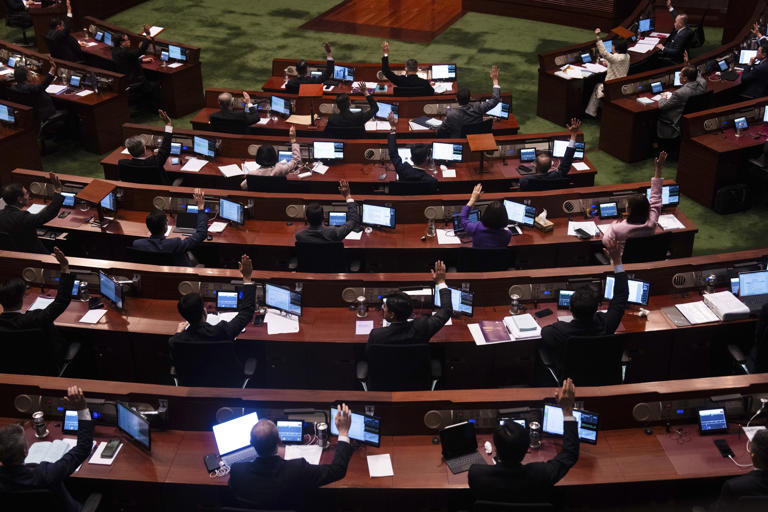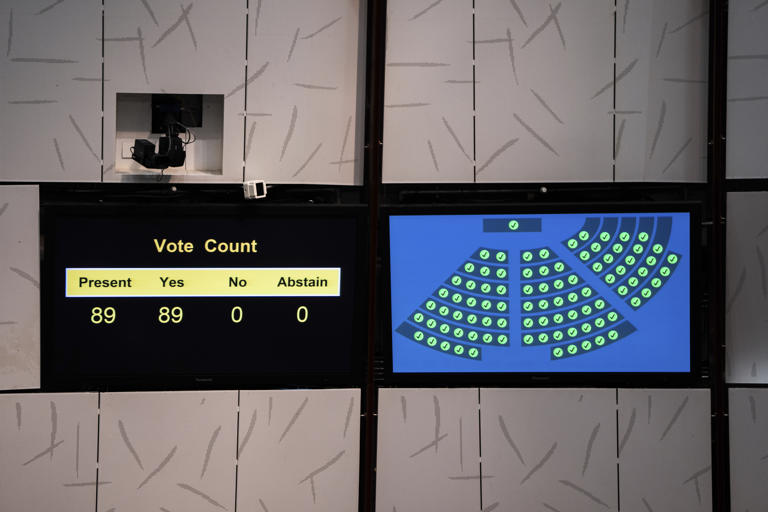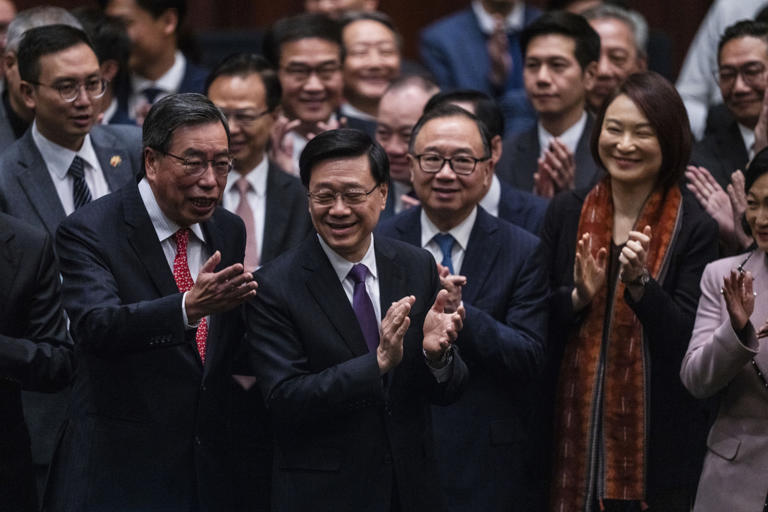Hong Kong Lawmakers Unanimously Approve New National Security Law
HONG KONG (AP) — In a move met with concern from human rights advocates and global leaders, Hong Kong lawmakers have unanimously approved a new national security law. The law, passed during a special session of the Legislative Council, grants the government expanded powers to suppress dissent, marking another significant step in the ongoing political crackdown following the pro-democracy protests of 2019.

The Safeguarding National Security Bill broadens authorities’ capacity to prosecute citizens for offenses deemed threatening to national security. These offenses include “colluding with external forces” to commit illegal acts, treason, insurrection, espionage, and disclosing state secrets. The legislation, which mirrors a similar security law imposed by Beijing in 2020, has raised alarms among critics concerned about the erosion of civil liberties promised to Hong Kong for 50 years after its handover to China in 1997.
The legislative process surrounding the bill has drawn scrutiny. The Legislative Council, now dominated by Beijing loyalists following electoral reforms, expedited the law’s approval. Despite claims of careful examination and some amendments, critics argue that the rushed proceedings underscore a flawed accountability system deliberately weakened to enhance state control.
While officials assert that the law strikes a balance between security and preserving rights and freedoms, its passage has triggered apprehension among various sectors of society. Businesspeople and journalists fear its broad reach will impede their daily activities. Observers are keen to see whether enforcement will extend to other professional domains and its impact on individual liberties.

International reactions to the law’s passage have been swift and critical. The UN High Commissioner for Human Rights condemned it as a regressive step for human rights protection in Hong Kong. UK Foreign Secretary David Cameron expressed concerns about the law’s implications for residents, workers, and businesses, while the Chairman of the US House Foreign Affairs Committee, Michael McCaul, emphasized the dangers posed to democracy and global business in the region.
Amidst mounting international pressure, a group of US lawmakers has called for a review of travel advisories to Hong Kong, sanctions against officials involved in the legislation, and the reassessment of diplomatic privileges for Hong Kong’s offices in the US.
The passage of the new national security law underscores the continued transformation of Hong Kong’s political landscape and raises profound questions about the future of civil liberties in the region. As the city grapples with its evolving relationship with Beijing, the implications of this legislation reverberate both locally and globally, casting a shadow over the once vibrant enclave of free expression and dissent.




